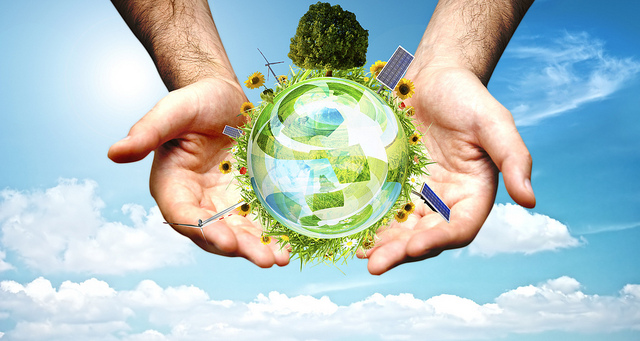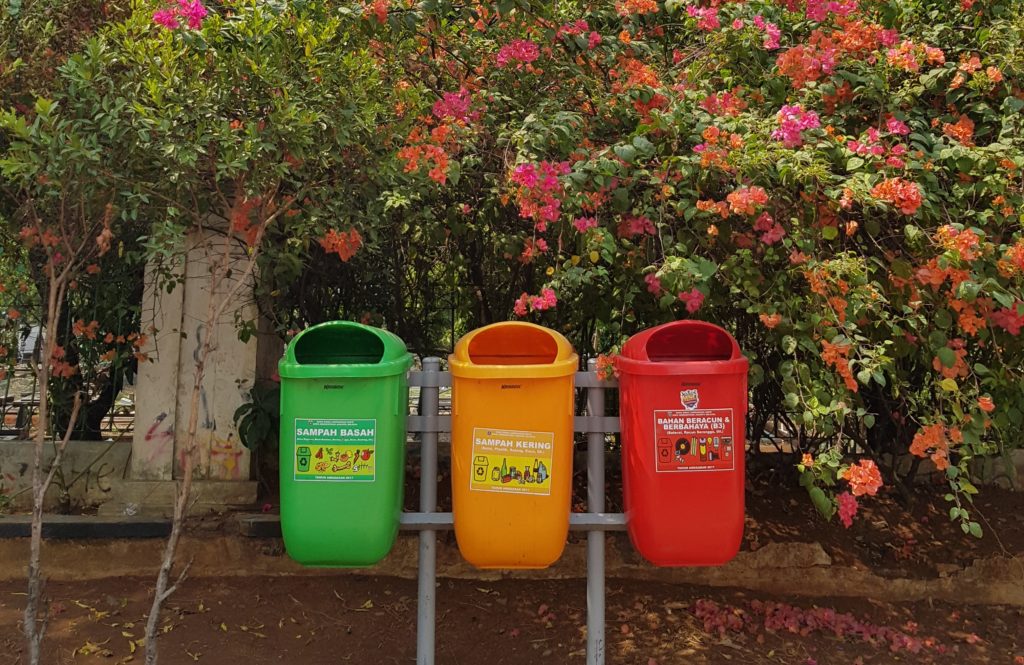Minimizing The Cost: A Guide To Your Post-COVID, Ecological Reformation

For many business owners, the task of ‘going green’ occupies the top slot on the 2022 agenda. Not only has reflecting the values and ideals of employees and consumers become more urgent, but with new advancements in the green space, sustainability has also become a tried and true way for companies to increase their sales and reduce their bottom line.
It’s with a strong desire that consumers are seeking companies that make a concerted effort toward improving the environment. In fact, 64% of Americans report that they would switch brands and pay more for products that are from companies that are committed to having a lasting, positive impact on the environment.
Consumers aren’t the only ones that want to find companies that are sustainable and socially responsible; the same ideals are reflected by employees in their career choices and commitments. Among millennials, a major group in the workforce, 80% of employees are more loyal to companies with social and environmental practices, and 64% would refuse a position if a company didn’t have a strong CSR policy.
And while environmental neutrality can be a major expense on a post-COVID budget, properly managed solutions can create drastically improved operating margins in the short and long term. Below are four eco-friendly solutions for both small and large businesses to facilitate employee loyalty, consumer relevance, and an improved bottom line.
The Power of an Audit
Preceding any eco-friendly investments, it’s vital to understand your energy use and waste as it stands. Performing an audit to determine the amount of waste in your office building is the best way to determine which ecological solutions to prioritize based on your current ecological footprint, your company needs, and your environmental pain points. B Lab, a leading authority in the green solutions space, offers a free online audit tool to help companies who are thinking about implementing more sustainable practices understand the path from where they are to where they want to be.
A B-Corporation certification, audited and authorized by an entity like B Lab, can be a kind of sustainability north star, but companies don’t have to get there all at once. Soliciting an expert with an accredited organization to assess your ecological habits as they stand is a great place to start. With those early insights, owners can take small steps toward implementing better solutions—green temperature and lighting solutions, improved shipping and delivery materials, integrated platforms that monitor building use and toggle lights or climate settings when the space is empty. The path to full B-Corp certification—the highest sustainability accreditation in the corporate sphere—can be long, but finding pain points and opportunities for improvement is the right first step.
Effective, In-Office Recycling
Recycling includes the basics—the proper management, reuse, and disposal of paper, plastic, glass, cardboard, aluminum, and electronics. A simple way to reduce costs and improve your footprint overall, recycling programs can include engaging incentives for employees to get involved and take a leadership role.
On a larger scale, though, companies can also look into a recycling strategy for the environmental impact of their production, supply chain, or delivery processes. Committing to a carbon offsetting program is a great way to begin to replenish the unavoidable toll that our corporate practices can take. Many platforms exist to make this easy, and companies can choose from a range of strategies that work for the stage that they’re at.

Leveraging Hybrid Work
Businesses and corporations had to change their business model to protect the health of their employees. But, as businesses had their employees shift to working from home, both small and large businesses have realized that they’re reducing ecological and financial costs at the same time.
Moving into hybrid models, companies can further reduce their ecological costs, maintaining the energy demands of an office less often for the employees who come in. The transition period is an opportune time to put new solutions and new incentives in place. Returning employees can be trained on the use of new building app platforms to monitor and reduce their own use of energy. Commuting initiatives can be established so that team members are encouraged to bike or walk to work whenever possible. As schedules are re-imagined, volunteering time can be worked in, allowing employees to spend some of their out-of-office time engaged in their local community. Remote work offers owners the perfect opportunity to make some of these ideas a reality.
Sourcing Local, Sustainable Materials
The search for post-COVID suppliers comes with a few key questions: whether or not the supplier aligns with your company’s goals, whether they use responsible practices and sustainable materials. Another key consideration, and one that’s often missed, is the availability of nearby suppliers who could add to or replace your supply chain relationships.
Sourcing sustainable products from local vendors will drastically improve the resource waste incurred from long-distance shipping. Costs, both ecological and financial, are saved in the areas of fossil fuels, packaging, production and shipping. And as more businesses move to the e-commerce model, engaging local vendors and suppliers is a really successful way to offset the new demand for final-mile delivery.
Finding eco-friendly solutions that you can easily integrate into your business, practices that align with both your company ideals and your available budget, can be daunting. But the right solutions can offer business owners both environmental and economic benefits in the very near future. A successful green transition requires research and investment. But with the necessary resource spend, cultivating a green environment for your consumers and employees will have positive results and compounding returns for your business in no time.
By Tara Milburn
Tara Milburn is the Founder and CEO of Ethical Swag, a sustainable branding company that makes it easy for brands to offer personalized promotional products that they can stand behind. Certified as a B-Corporation, Ethical Swag has been audited to the highest global standard for sustainability.


